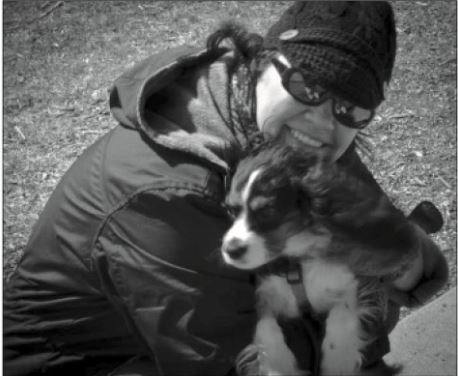Comforting cuddle companions

English teacher Jennifer McDowell cuddles Watson- one of her Cavalier King Charles Spaniels. Photo courtesy of Andy McDowell.
March 23, 2022
A child dashes around the hallways of an animal shelter before coming to a sudden stop. His eyes stare into one of the pens, and the dog inside it stares back with excitement. Suddenly, the child smiles, exclaiming to their parents that this one is “the one.” Later that day, that child and his parents return home. With them, they’ve brought their new dog, a new addition to their family that they will love and cherish for years to come.
Today, roughly 70 percent of U.S. households have a pet according to the 2021-2022 APPA National Pet Owners Survey, and they range across all sorts of species from traditional dogs, cats and hamsters to more exotic pets like monkeys, snakes and even chinchillas.
In a survey on 140 North students, 73 percent reported that they had pets, yielding similar results to the APPA survey. Many people have decided to care for pets of their own, but why is that?
The concept of animal ownership dates back to primitive times, when pets were kept for their hunting abilities and overall survival skills rather than their cuteness. This is no longer the case, but that same companionship still exists. Humans and their animals develop a unique bond with each other, and there are interesting tidbits of information that demonstrate how pets and their humans connect.
Pets offer a lot of emotional support, and positively affect those who may be struggling with their mental health. This is because the affection reciprocated by a pet can be a boost for an individual’s emotional and mental state. They can be very healing for anyone who may be feeling sad or lonely.
“They always know how to cheer me up, and they’re really cute and playful,” said sophomore Kai Hernandez, owner of dogs named Fluffen and Mia. “I love the way that they comfort me, it’s like they’re always there for me.”
The love received from pets is unconditional, which is meaningful for individuals who are anxious or self-conscious. Pets are comforting, and the comfort that comes from such companions can often be a cure for a bad day.
“My favorite thing about my pets is that they love me for who I am,” said sophomore Sajdah Anani, owner of cats Ginger and Pirate. “They love me for being me, and for feeding them and taking care of them. They don’t care about my mistakes, or how I look or anything, just that I’m taking proper care of them.”
Pet ownership also contains social aspects. Many places like dog parks encourage owners to get to know each other, and people who walk their pets can be found almost everywhere. Even a shy pet owner can try and get out of their shell through online groups or communities all over social media open to meet people and their adorable animals. It is very easy for animals to improve someone’s social skills, as well as bring people closer together.
Whether shy or social, personality itself can play a big role in pet ownership. Research proves that the phrases “cat people” and “dog people” might hold some level of truth.
A study by Dr. Sam Gosling, a psychologist at the University of Texas involved a survey and personality assessment of approximately 4,500 people. The conclusion was that those who considered themselves “dog people” were about 15 percent more extroverted than those who considered themselves “cat people.”
“My dogs are always so excited and rambunctious.” said sophomore Yoanna Barajas, who considers herself more extroverted. “They really match my energy.”
Pets are special companions that humans grow deep attachments to, it is no wonder why so many people decide to adopt a pet.
“I like how we just kinda have them,” said sophomore Micah Fiddick, owner of dogs Freya and Natasha, and turtle Raphael. “Overall, they’re just nice to be around, even if sometimes the dogs can get loud.”






